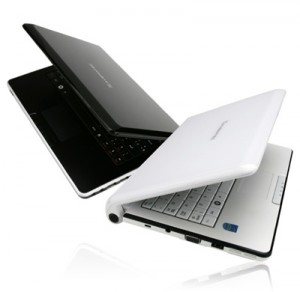Web Apps and Netbook Freedom

A few years ago, the Web 2.0 revolution came riding in on a wave of technological advancements, bringing with it a fundamentally different way of thinking that has forever changed the world of personal computing. No longer are users tethered to bulky, immobile desktop PCs, tangled amongst a mass of cables and surrounded by piles of mis-labeled CDs.
Instead, small and lightweight netbook computers offer an almost sublime freedom, letting people stay connected to the world wherever they happen to be. Users can access email, communicate with friends, family and associates, or even do their personal banking from anywhere that offers a wireless internet connection.
The possibilities offered by netbook computers rely very heavily on a special sort of software that has evolved along with changes in hardware that made netbooks possible. So-called “web apps” are programs that live online, and that owe their power to software technology like Flash or Java which lets programmers embed these apps into their websites. Such apps do not need to be downloaded or installed – they just load right inside the user’s web browser. Web apps are often cross-platform, and can be accessed from virtually any computer in the world.
Web apps and netbook computers go hand-in-hand. Because netbooks offer limited computing power and meager storage space, users may find it difficult to install large programs such as full office suites or photo editing apps. Web apps, which stream their services through the internet, fill this gap nicely.
Moreover, the fact that web apps are always accessible means that netbook users are never far away from the files and the programs they need. Users only need to get online from wherever they happen to be, and everything they need becomes available right away.
Today, there is a “web app” version of just about every piece of software that a person might normally install on their desktop PC. Online programs are available that offer advanced word processing, spreadsheet, and database capabilities. Users can edit and resize photographs, create videos, compose presentations, and play games.
Even the world of online gambling has embraced the concept of web apps. Many internet casinos now offer “no download” versions of their best online casino games. These no download casinos let players connect to their accounts through their netbook computers to play real-money games and participate in multiplayer events like online casino free tournaments.
While the future of personal computing cannot be predicted, it seems that netbooks and web apps represent the beginning of a major wave of change. The move towards wireless systems, cloud computing networks, and web-centric software has only just begun, and as technology allows computing to become more and more portable, the possibilities can only increase.

A few years ago, the Web 2.0 revolution came riding in on a wave of technological advancements, bringing with it a fundamentally different way of thinking that has forever changed the world of personal computing. No longer are users tethered to bulky, immobile desktop PCs, tangled amongst a mass of cables and surrounded by piles of mis-labeled CDs.
Instead, small and lightweight netbook computers offer an almost sublime freedom, letting people stay connected to the world wherever they happen to be. Users can access email, communicate with friends, family and associates, or even do their personal banking from anywhere that offers a wireless internet connection.
The possibilities offered by netbook computers rely very heavily on a special sort of software that has evolved along with changes in hardware that made netbooks possible. So-called “web apps” are programs that live online, and that owe their power to software technology like Flash or Java which lets programmers embed these apps into their websites. Such apps do not need to be downloaded or installed – they just load right inside the user’s web browser. Web apps are often cross-platform, and can be accessed from virtually any computer in the world.
Web apps and netbook computers go hand-in-hand. Because netbooks offer limited computing power and meager storage space, users may find it difficult to install large programs such as full office suites or photo editing apps. Web apps, which stream their services through the internet, fill this gap nicely.
Moreover, the fact that web apps are always accessible means that netbook users are never far away from the files and the programs they need. Users only need to get online from wherever they happen to be, and everything they need becomes available right away.
Today, there is a “web app” version of just about every piece of software that a person might normally install on their desktop PC. Online programs are available that offer advanced word processing, spreadsheet, and database capabilities. Users can edit and resize photographs, create videos, compose presentations, and play games.
Even the world of online gambling has embraced the concept of web apps. Many internet casinos now offer “no download” versions of their best online casino games. These no download casinos let players connect to their accounts through their netbook computers to play real-money games and participate in multiplayer events like online casino free tournaments.
While the future of personal computing cannot be predicted, it seems that netbooks and web apps represent the beginning of a major wave of change. The move towards wireless systems, cloud computing networks, and web-centric software has only just begun, and as technology allows computing to become more and more portable, the possibilities can only increase.




